Lotte Bransen
Stop Guessing: Optimizing Goalkeeper Policies for Soccer Penalty Kicks
May 30, 2025Abstract:Penalties are fraught and game-changing moments in soccer games that teams explicitly prepare for. Consequently, there has been substantial interest in analyzing them in order to provide advice to practitioners. From a data science perspective, such analyses suffer from a significant limitation: they make the unrealistic simplifying assumption that goalkeepers and takers select their action -- where to dive and where to the place the kick -- independently of each other. In reality, the choices that some goalkeepers make depend on the taker's movements and vice-versa. This adds substantial complexity to the problem because not all players have the same action capacities, that is, only some players are capable of basing their decisions on their opponent's movements. However, the small sample sizes on the player level mean that one may have limited insights into a specific opponent's capacities. We address these challenges by developing a player-agnostic simulation framework that can evaluate the efficacy of different goalkeeper strategies. It considers a rich set of choices and incorporates information about a goalkeeper's skills. Our work is grounded in a large dataset of penalties that were annotated by penalty experts and include aspects of both kicker and goalkeeper strategies. We show how our framework can be used to optimize goalkeeper policies in real-world situations.
Measuring Football Players' On-the-ball Contributions From Passes During Games
Sep 13, 2018
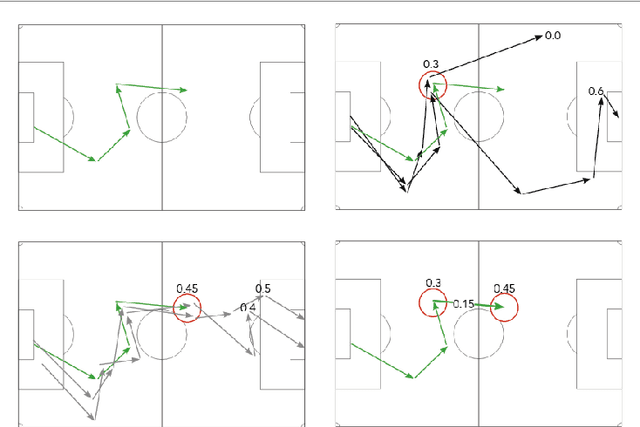
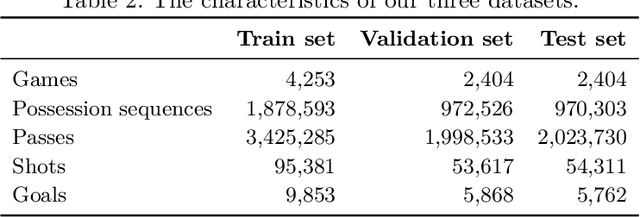
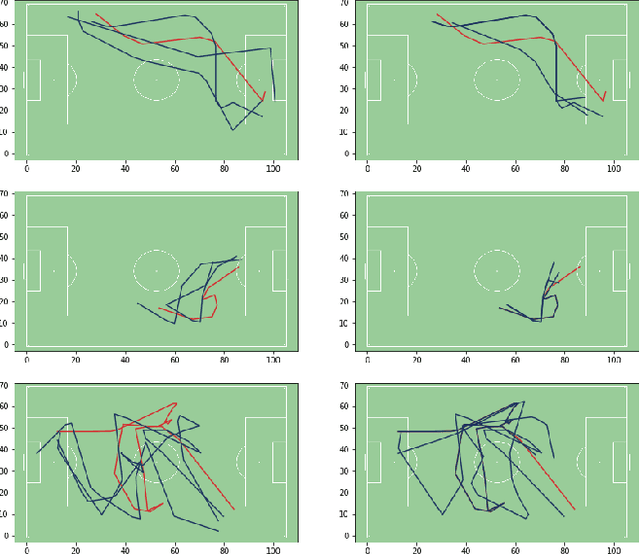
Abstract:Several performance metrics for quantifying the in-game performances of individual football players have been proposed in recent years. Although the majority of the on-the-ball actions during games constitutes of passes, many of the currently available metrics focus on measuring the quality of shots only. To help bridge this gap, we propose a novel approach to measure players' on-the-ball contributions from passes during games. Our proposed approach measures the expected impact of each pass on the scoreline.
Actions Speak Louder Than Goals: Valuing Player Actions in Soccer
Feb 18, 2018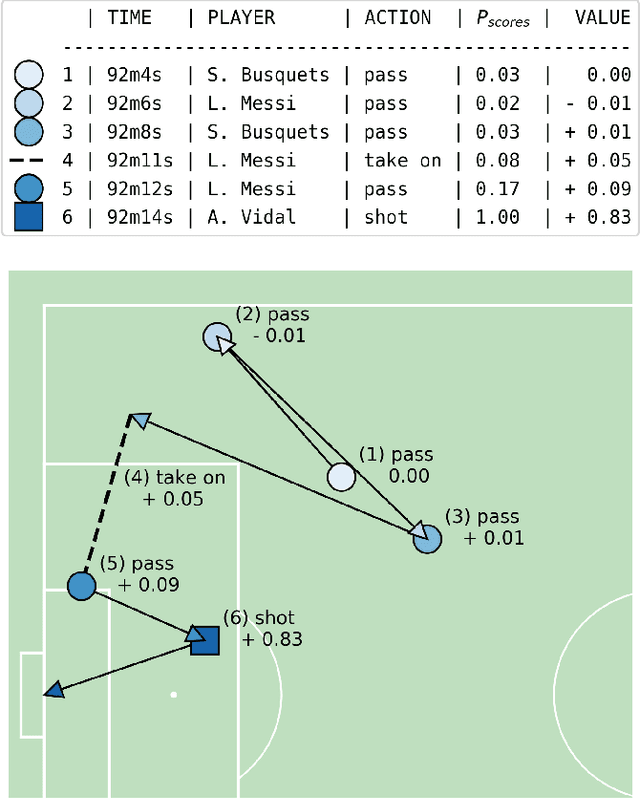
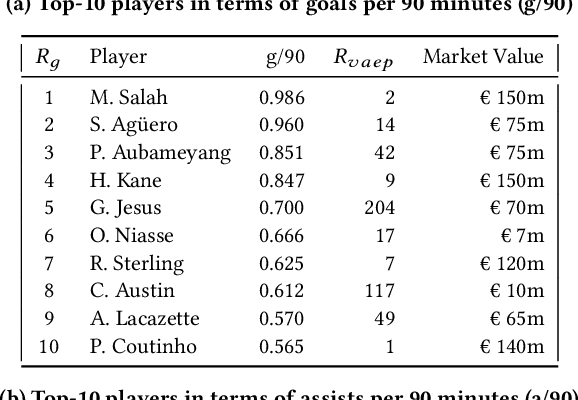
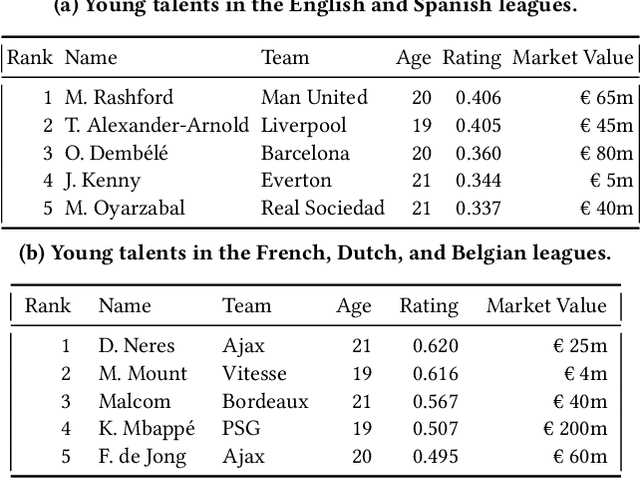
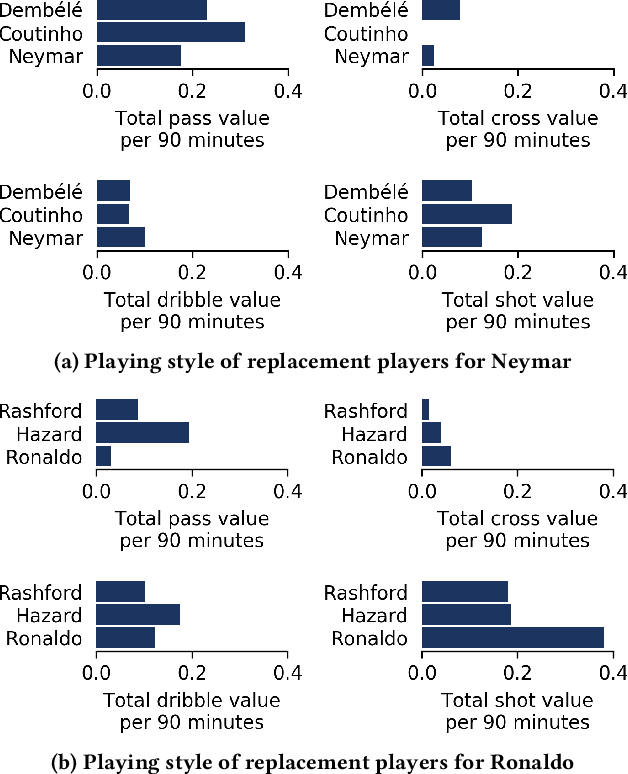
Abstract:Assessing the impact of the individual actions performed by soccer players during games is a crucial aspect of the player recruitment process. Unfortunately, most traditional metrics fall short in addressing this task as they either focus on rare events like shots and goals alone or fail to account for the context in which the actions occurred. This paper introduces a novel advanced soccer metric for valuing any type of individual player action on the pitch, be it with or without the ball. Our metric values each player action based on its impact on the game outcome while accounting for the circumstances under which the action happened. When applied to on-the-ball actions like passes, dribbles, and shots alone, our metric identifies Argentine forward Lionel Messi, French teenage star Kylian Mbapp\'e, and Belgian winger Eden Hazard as the most effective players during the 2016/2017 season.
 Add to Chrome
Add to Chrome Add to Firefox
Add to Firefox Add to Edge
Add to Edge